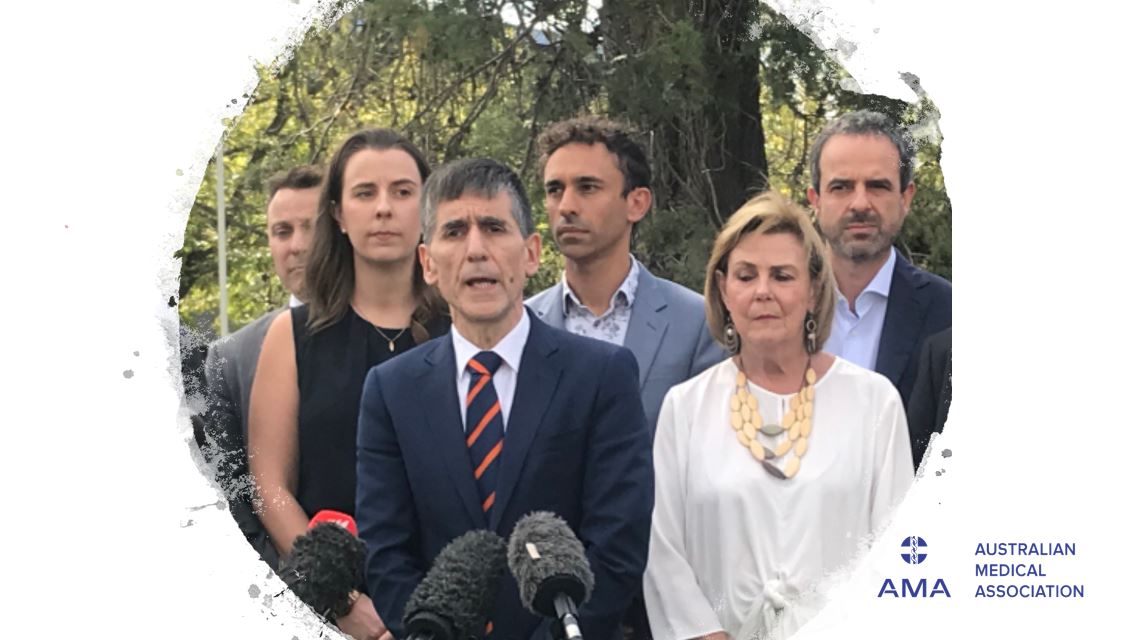Medical
AMA calls on strong medical leadership in response to COVID-19 crisis

Medical News: Recognising that Australian Governments have been working to respond to the escalation of COVID-19, and many measures such as the expanded use of medical telehealth services are yet to be fully optimised, the AMA believes the next stage of responding to COVID-19 requires strong medical leadership.
Communication
- Consistent, succinct and contemporaneous communication across all media from a single trusted source must be provided. The public has been receiving conflicting and inaccurate information about when they need to be tested, and how they should approach testing, and what comprises effective prevention and mitigation strategies.
- Involvement of the medical profession at all levels in planning and disseminating the public health message is essential.
Register FREE and join 20,000+ industry professionals who read the latest industry news, innovations and insights from Health Industry Hub; the ONLY one-stop-hub connecting Australia’s Pharma, MedTech and Biotech industry professionals and its key stakeholders.
Prevention of spread
- The national response should focus on a greater effort to slow the pace of COVID-19’s spread in Australia as a means to ‘flatten the curve’ of the outbreak.
- Australia must act to prevent community transmission by: effectively implementing the announced ban on mass public gatherings; encouraging social distancing; and, minimising social contact where alternatives are readily available (such as working from home, virtual meetings).
- Planning should be undertaken for potential advanced education centre closures, workplace restrictions, and the possibility of school closures.
- Measures to ensure essential services and health service providers are adequately stocked and properly trained in the appropriate use of PPE must be an urgent priority. Access for healthcare personnel to sufficient Personal Protection Equipment (PPE) is still inadequate.
Vulnerable Communities
- Communities identified as being vulnerable, and in which morbidity and mortality is expected to be higher, include: Aboriginal and Torres Strait Islander populations; people with complex and chronic disease, the elderly, persons in residential aged care; and, rural and remote populations.
- We call for the limiting of non-essential travel to Indigenous rural and remote communities. We also ask that rural health needs be considered with emerging COVID-19 related policy and care delivery decisions.
- Preparation for potential virus spread in aged care must include published action plans for response to concentrated virus outbreak in residential aged care centres or densely populated areas of older Australians to guide preventive and responsive actions for older Australians, aged care workers, the medical and wider health profession, and those with family members in aged care.
Medical Workforce maintenance and support
- The health, safety, and wellbeing of all healthcare workers must be prioritised to maintain healthcare delivery capacity during the response to COVID-19.
- Clear and consistent guidance on COVID-19 testing for health care workers is imperative and testing should be prioritised by pathology services to minimise periods off work due to isolation when not infected with COVID-19.
- Preparation for a large proportion of the healthcare workforce needing to self-isolate or cease work due to exposure or illness, and resultant consequences for patient access to care, must be urgently addressed.
- In order to minimise community spread of COVID-19 and maintain non-pandemic related health service provision, all doctors in private practice should have immediate access to telehealth for treatment of all patients, not just for screening and treatment of potential COVID-19 infection.
- Doctors in private practice, both GPs and other specialists, must be involved in planning and implementation of the COVID-19 response, and clear, accessible and authoritative communication lines must be established.
- Extraordinary workforce measures such as recruiting retired or semi-retired doctors and other health workers; reassigning healthcare workers including doctors out of their usual clinical fields; and, utilising medical students as physician extenders or clinical aides must be undertaken only with due consideration of clinical outcomes, personal and community safety outcomes, and without coercion.
- Consideration of means to maintain the adequate education, assessment, and continuous professional development of all doctors, including those in training and medical students, is essential as is considering the impact of pandemic related workforce and training disruption on the continuing visa status of internationally trained doctors.
- There must be planning for follow-up personal support for all health workers to ensure ongoing psychological wellbeing after this crisis has passed.
Protection of access to health care
- A clear plan for the usual care of patients is needed for patients without COVID-19. It is essential that patients with other pressing clinical needs can access timely care.
- The role of the Private Health system in relieving health system pressure due to COVID-19 needs to be included in planning efforts. Releasing the public hospital system from dealing with less acute health problems will help sustain access but will require whole of health sector coordination.
In 2016, the AMA called for establishment of a national Centre for Disease Control (CDC). The challenges currently being faced by the Australian community underscores the need for strengthened national coordination of pandemic response capability. Establishment of a CDC is essential at the conclusion of this current emergency.
Digital & Innovation

Medical drone to reduce health equity gaps in rural and remote Australia
A specialised medical drone which increases accessibility to essential health services such as pathology, medicines, and telehealth services in rural […]
MoreNews & Trends - Pharmaceuticals

We’ve spent more on healthcare, but it’s been worth it
Healthcare expenditure is surging, with Australia now allocating approximately one-tenth of its budget to this sector. This financial uptick prompts […]
MoreNews & Trends - Pharmaceuticals

New partnership to raise the bar in precision oncology in Queensland
Pharma News: The Australian Translational Genomics Centre (ATGC) is teaming up with non-profit research organisation Omico and the PrOSPeCT program […]
MoreNews & Trends - Biotechnology

AusBiotech appoints new CEO: Former Sanofi corporate affairs and sustainability leader takes the helm
Biotech News: AusBiotech, the nation’s leading industry body for the biotech sector, has named former leader at Sanofi, Rebekah Cassidy, […]
More